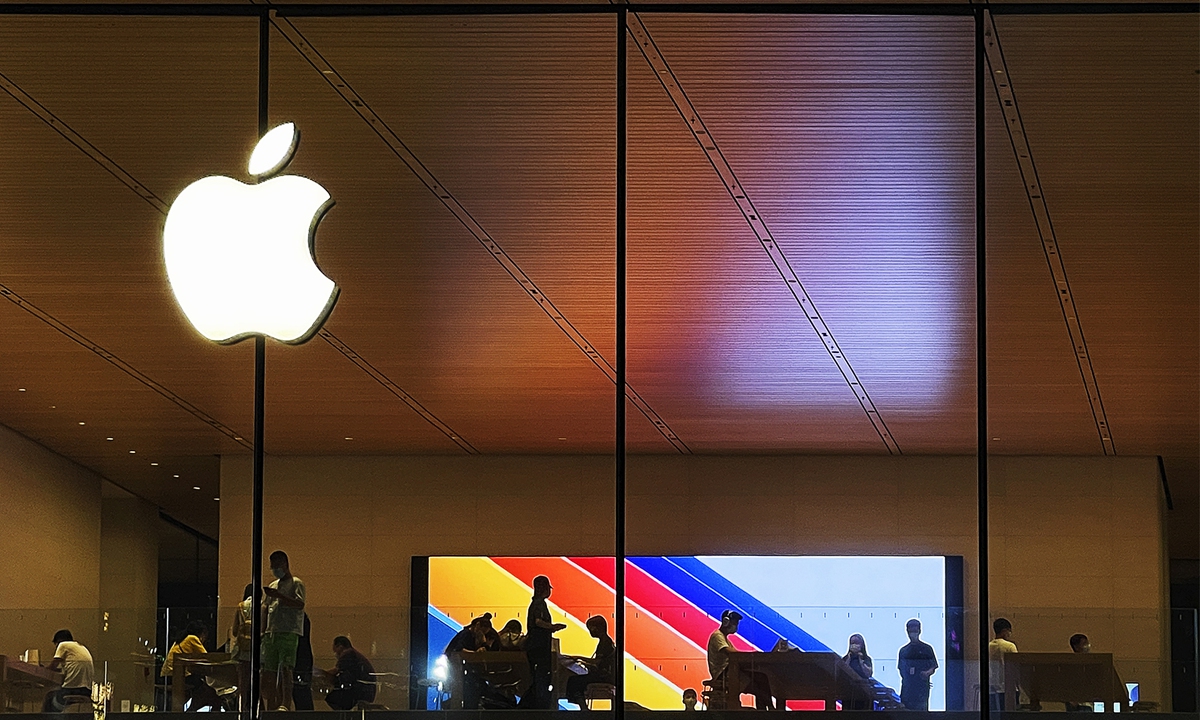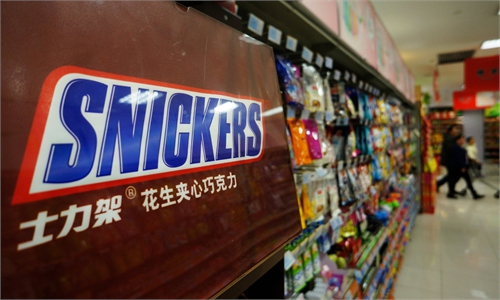Strict 'Taiwan' labeling urged for global firms under one-China principle following Pelosi's provocative visit
Secessionists feel squeeze of mainland response

Photo: CFP
In further possible economic fallout from US House Speaker Nancy Pelosi's provocative visit to Taiwan island, the Chinese mainland reportedly move to tighten the enforcement of labeling rules on imports from the island, indicating that the mainland will not allow any ambiguity on the Taiwan question, including in the economic and trade area, experts noted.
US tech giant Apple told its suppliers to strictly comply with the Chinese mainland's customs regulations and avoid labeling products from Taiwan island as "made in Taiwan," the Nikkei reported on Friday.
Experts said the new move could further squeeze the living space of secessionist businessmen in Taiwan island for their businesses in the Chinese mainland.
According to the Nikkei report, Apple told its suppliers that mainland authorities have started strictly enforcing a long-standing rule that states Taiwan-made parts and components must be labeled as made either in "Taiwan, China" or "Chinese Taipei" to avoid shipments from being held for examination.
The Apple warning came on the heels of another media report that shipments to Apple's supplier Pegatron Corp's factory in Suzhou, East China's Jiangsu Province, were being held for examination by Chinese customs, to see if there is any violation of labeling regulations. But Pegatron denied the report, saying that its Suzhou plant is operating normally and there have been no shipment disruptions, according to Bloomberg.
Apple declined to comment when contacted by the Global Times.
Early in 1999, China's General Administration of Customs already stipulated that goods and their packaging with labeling content in violation of the one-China principle will not be approved for import or export. This means that the mainland's regulations regarding the management of certificates of origin and labeling in cross-Straits trade have been enforced for many years.
A tightening of the labeling rule may not just affect Apple's suppliers, but all those that send shipments from Taiwan island to the mainland, Gao Lingyun, an expert at the Chinese Academy of Social Sciences (CASS) in Beijing, told the Global Times on Saturday.
According to Gao, the enforcement of the labeling rule had not been very strict in the past. Since the Taiwan authority requires exported goods made in the island to be labeled as "Taiwan" or the so-called "Republic of China," many exporters from Taiwan used to label the boxes loaded with goods as "Taiwan, China" after leaving Taiwan ports to dodge the regulation, said Gao.
"If the mainland authorities tighten the enforcement of the rule, this may increase the probability of shipments from Taiwan island being seized by mainland customs," Gao noted.
Despite concerns over trade barriers, this is more like a posture of emphasizing the one-China principle to the cross-Straits business community after Pelosi's visit, Mei Xinyu, a research fellow with the Chinese Academy of International Trade and Economic Cooperation under the Ministry of Commerce, told the Global Times on Saturday.
Pelosi's visit to the island and the secessionist Democratic Progressive Party's pandering have pushed the Taiwan question to the brink of a showdown. Against this backdrop, the labeling rule is actually a message to businesspeople in Taiwan that they have to make a choice, Mei noted.
Ma Jihua, a veteran industry analyst, told the Global Times on Sunday that there will be no grey zone in implementing the one-China principle, and that the move will effectively squeeze the living space for secessionists, deprive them of their funding sources.
A senior semiconductor expert based in Beijing told the Global Times on Sunday that the event underlined the importance of the Chinese market to Apple and the reliance on Apple by a number of Taiwan-based suppliers including Taiwan Semiconductor Manufacturing Co (TSMC).
Apple's China operations have to abide by China's law - an international norm for multinational companies - and Apple suppliers have to heed Apple's rules, the expert said.
TSMC chairman Mark Liu met with Pelosi during her visit to the island last week. Prior to the visit, Liu said in an interview with CNN that "nobody can control TSMC by force."
TSMC's chip sales to Apple alone made up a quarter of TSMC's revenue in 2021, according to media reports.
After Pelosi's provocative visit to Taiwan island, Chinese mainland customs authorities on Wednesday suspended the entry of citrus fruits including grapefruits, lemons and oranges, as well as two types of fish from the island, in accordance with regulations and food safety requirements. The mainland's exports of natural sand, used in construction, to the island were banned.


